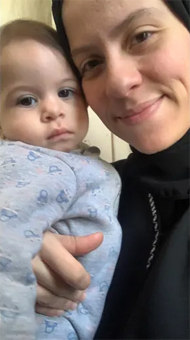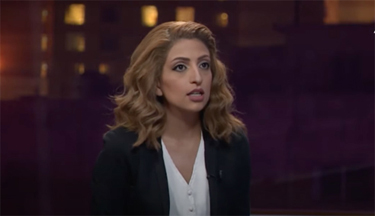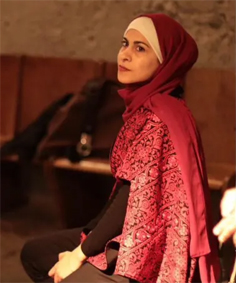|
CRY FREEDOM.net
formerly known as
Women's Liberation Front
MORE INSIGHT MORE LIFE
Welcome to cryfreedom.net,
formerly known as Womens
Liberation Front.
A website
that hopes to draw and keeps your attention for both the global 21th. century 3rd. feminist revolution as well
as especially for the Zan, Zendegi, Azadi uprising in Iran and the
struggles of our sisters in other parts of the Middle East. This online magazine
that started December 2019 will
be published every week. Thank you for your time and interest.
Gino d'Artali
indept investigative
journalist
radical feminist and women's rights activist
'WOMEN, LIFE, FREEDOM'
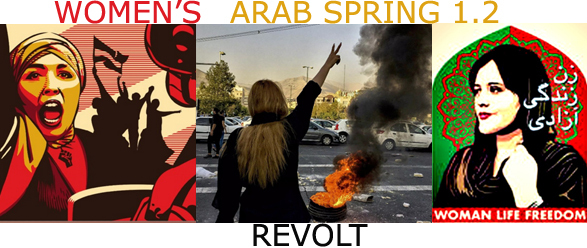
You are now at the section on what is happening in the rest of the Middle
east
(Updates
July 23, 2024)
Click here for the
Iran 'Woman, Life, Freedom' section
For the 'Women's Arab Spring 1.2' Revolt
news
click here
CLICK HERE ON HOW TO READ
ALL ON THIS PAGE
|
SPECIAL
REPORTS PALESTINE
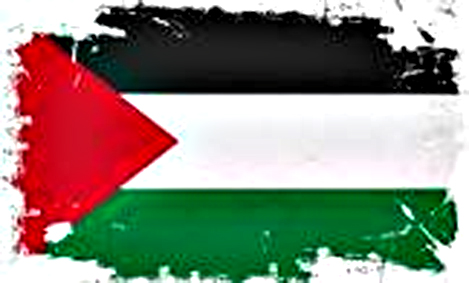
FROM THE RIVER TO THE SEA - FREE PALESTINE
July
wk4 P2
-- July
wk 4 -- July
wk 4to3 -- July
wk3 P3 --
July wk3 P2 --
July wk3 --
July wk2 P3
-- July
wk2 P2 -- July
wk2 --
July wk1 P3 --
Click here for an overview by week in 2024
|
July 23 - 22,
2024
Editorial note: we all know
that the genocide continues but...
please do read all about the actual news and facts and
especially do read to the end that really calls out
to end it NOW! |
July 22 - 19, 2024
<<International Court of
Justice calls on Israel to end occupation of Palestinian
territories 'as rapidly as possible'
and other actual news below but most with a 'give way
or go away' yell! |
July 18 - 15, 2024
"Gaza's impossible living
conditions: 'If we don't die under the bombs, we'll die
a slow death'"
Food for thought: The question is what the
non-Palestinian people incl. politicians and sorts
will do to ease their conscience? Gino d'Artali
all actual news below but most with a 'give way
or go away' yell!
Click here to go throughout July
and earler, 2024 |
When one hurts or kills a women
one hurts or kills hummanity and is an antrocitie.
Gino d'Artali
and: My mother (1931-1997) always said to me <Mi
figlio, non esistono notizie <vecchie> perche puoi imparare qualcosa da
qualsiasi notizia.> Translated: <My son, there is no such thing as so
called 'old' news because you can learn something from any news.>
Gianna d'Artali.
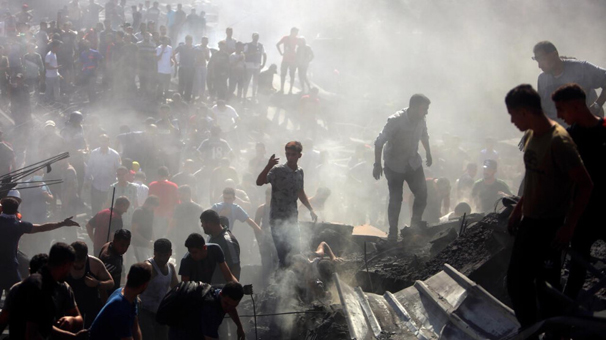
More genocidal killings
Jinha - Womens News Agency - July 23, 2024
<<At least 39,090 Palestinians killed in Gaza since Oct.7
At least 39,090 Palestinians have been killed and 90,147 others injured
in Israeli attacks on the Gaza Strip since October 7, 2023, the Gaza's
health ministry said in a statement on Tuesday.
News Center- Israel has been waging a war on the Gaza Strip since
October 7, 2023. At least 39,090 Palestinians have been killed and
90,147 others injured in Israeli attacks on the Gaza Strip since October
7, 2023, the Gazaís health ministry said in a statement on Tuesday.
Israel conducted eight <massacres> in different parts of the Gaza Strip
in the last 24 hours, killing at least 84 Palestinians and injuring 329
others, the ministry added, stressing that there are many bodies under
rubble and the civil defense crews cannot reach them due to ongoing
Israeli attacks.>>
Source:
https://jinhaagency.com/en/actual/at-least-39-090-palestinians-killed-in-gaza-since-oct-7-35420
France 25 - July 23, 2024
<<Israeli strikes kill scores, wound hundreds after Gaza evacuation
order
The health ministry in Hamas-run Gaza said Monday that an Israeli
operation in the main southern city of Khan Yunis killed 70 people and
wounded more than 200, after Israel warned its forces would <forcefully
operate> in the area. Thousands of Palestinians fled southern areas of
the territory following the Israeli army's temporary evacuation order
for parts of Khan Yunis, including the Al-Mawasi humanitarian zone.>>
Source incl. video:
https://www.france24.com/en/video/20240723-israeli-strikes-kill-scores-wound-hundreds-after-gaza-evacuation-order
France 25 - July 23, 2024 - By: NEWS WIRES
<<Hamas and Fatah sign 'Beijing declaration' for a joint post-war
governance of Gaza
Hamas announced Tuesday it had signed an agreement in Beijing with other
Palestinian organisations, including rivals Fatah, to work together for
<national unity> and govern Gaza jointly after the end of the conflict
with Israel. Chinese Foreign Minister Wang Yi, who hosted the
Palestinian groups, said they had agreed to set up an <interim national
reconciliation government> to oversee post-war Gaza. Hamas announced
Tuesday it had signed an agreement in Beijing with other Palestinian
organisations including rivals Fatah to work together for <national
unity>, with China describing it as a deal to rule Gaza together once
the war ends. Chinese Foreign Minister Wang Yi, who hosted senior Hamas
official Musa Abu Marzuk, Fatah envoy Mahmud al-Aloul and emissaries
from 12 other Palestinian groups, said they had agreed to set up an
<interim national reconciliation government> to govern post-war Gaza.
<Today we sign an agreement for national unity and we say that the path
to completing this journey is national unity. We are committed to
national unity and we call for it,> Abu Marzuk said after meeting Wang
and the other envoys. The announcement comes more than nine months into
a war sparked by Hamas's October attack on southern Israel, which
resulted in the deaths of 1,197 people, mostly civilians, according to
an AFP tally based on Israeli figures. The militants also seized 251
hostages, 116 of whom are still in Gaza, including 44 the Israeli
military says are dead. Israel's retaliatory military campaign in Gaza
has killed more than 39,000 people, also mostly civilians, according to
data from the health ministry in Hamas-run Gaza.
The relentless fighting has plunged Gaza into a severe humanitarian
crisis.
China has sought to play a mediator role in the conflict, which has been
rendered even more complex due to the intense rivalry between Hamas,
which rules the Gaza Strip, and Fatah, which partially governs the
occupied West Bank. Israel has vowed to keep fighting until it destroys
Hamas, and world powers including key Israeli backer the United States
have scrambled to imagine scenarios for the governance of Gaza once the
war ends.
Neither Israel nor the United States would sanction any post-war plan
that includes Hamas, which is proscribed as a terrorist organisation by
Washington. While it is unclear whether the deal announced in Beijing on
Tuesday can hold, it does indicate that the only world power that can
engineer a rapprochement between the Palestinian rivals is China. As
Tuesday's meeting wrapped up in Beijing, Wang said the groups had
committed to <reconciliation>. <The most prominent highlight is the
agreement to form an interim national reconciliation government around
the governance of post-war Gaza,> Wang said after the factions signed
the <Beijing declaration> in the Chinese capital. <Reconciliation is an
internal matter for the Palestinian factions, but at the same time, it
cannot be achieved without the support of the international community,>
Wang said. Fatah official Mahmoud al-Aloul thanked China for its
<unending support> for the Palestinian cause. <To China, you have our
love, you have all our friendship, from all the Palestinian people,> he
said. Notably, he did not mention whether any agreement had been reached
with Hamas and the other factions.
Also present at Tuesday's meeting were envoys from Egypt, Algeria and
Russia, according to Wang. Egypt, which neighbours Israel and Gaza, is a
key mediator in the conflict. Algeria is a non-permanent member of the
UN Security Council, and has drafted resolutions on the war. And while
Western powers have sought to isolate Russia over its Ukraine invasion,
China has maintained its strategic partnership with Moscow.
'Peace and stability'
China, Wang said, was keen to <play a constructive role in safeguarding
peace and stability in the Middle East>. He also called for a
<comprehensive, lasting and sustainable ceasefire>, as well as efforts
to promote Palestinian self-governance and full recognition of a
Palestinian state at the UN. Hamas and Fatah have been bitter rivals
since Hamas fighters ejected Fatah from the Gaza Strip after deadly
clashes that followed Hamas's resounding victory in a 2006 election.
Fatah controls the Palestinian Authority, which has partial
administrative control in the Israeli-occupied West Bank. Several
reconciliation bids have failed, but calls have grown since the Hamas
October attack and nine-month war in Gaza, with violence also soaring in
the West Bank where Fatah is based. China hosted Fatah and Hamas in
April but a meeting scheduled for June was postponed. China has
positioned itself as a more neutral actor on the Israel-Palestinian
conflict than its rival the United States, advocating for a two-state
solution while also maintaining good ties with Israel. And it has sought
to play a greater role in the Middle East in recent years, facilitating
last year's historic rapprochement between Saudi Arabia and Iran.
(AFP)>>
Source:
https://www.france24.com/en/live-news/20240723-hamas-announces-national-unity-deal-with-palestinian-rivals
Related:
<<Israel slams Beijing deal to include Hamas in post-war Gaza
government...>>
https://www.france24.com/en/live-news/20240723-israel-slams-beijing-deal-to-include-hamas-in-post-war-gaza-government
France 25 - July 23, 2024 - By: NEWS WIRES
<<Israeli government allocates millions to unauthorised West Bank
settler outposts
The Israeli government has allocated $20.5 million to protect small,
unauthorised Jewish farms in the occupied West Bank, aiming to develop
them into settlements. Documents uncovered by Peace Now reveal that
Israel's pro-settler government has discreetly funneled money into
unauthorised outposts, separate from its over 100 officially recognised
settlements. The Israeli government has budgeted millions of dollars to
protect small, unauthorised Jewish farms in the Israeli-occupied West
Bank, underwriting tiny outposts meant to grow into full-fledged
settlements, according to an anti-settlement monitoring group.
Documents uncovered by Peace Now illustrate how Israel's pro-settler
government has quietly poured money into the unauthorised outposts,
which are separate from its more than 100 officially recognised
settlements. Some of those outposts have been linked to settler violence
against Palestinians and are sanctioned by the US. Palestinians and the
international community say all settlements are illegal or illegitimate
and undermine hopes for a two-state solution. The Ministry of
Settlements and National Mission, which is headed by a far-right settler
leader, confirmed it budgeted 75 million shekels ($20.5 million) last
year for security equipment for <young settlements> - the term it uses
for unauthorized Jewish farms and outposts in the West Bank. The money
was quietly authorised in December while the country's attention was
focused on the war against Hamas in Gaza. Peace Now said the funds have
been used for vehicles, drones, cameras, generators, electric gates,
fences and new roads that reach some of the more remote farms. The group
estimates approximately 500 people live on the small, unauthorised farms
and 25,000 more live in larger outposts.
Those outposts, while not officially authorised by the government, often
receive tacit support before they are retroactively legalised. Hagit
Ofran, director of Peace Now's <settlement watch> program, said the
funding was the first time the Israeli government has channeled money to
the outposts so openly. Rights groups say the expanding network of
remote farms atop West Bank hilltops are the primary drivers of violence
and displacement of Palestinians. In the last month alone, Israel's
government has legalised five formerly unauthorized settlements and made
the largest land grab in the West Bank in three decades, declaring a
wide swath of the territory state land in preparation for new
construction.
Palestinians say violence by people associated with these farms has
soared since Hamas' Oct. 7 attack, which sparked Israel's war against
the militant group in the Gaza Strip. On Friday, the top United Nations
court said Israel's presence in the Palestinian territories is unlawful
and called for an immediate halt to settlement construction. Prime
Minister Binjamin Netanyahu quickly denounced the nonbinding opinion,
saying the territories are part of the Jewish people's historic
homeland. Israel captured the West Bank, east Jerusalem and Gaza - areas
claimed by the Palestinians for a future state - in the 1967 Mideast
war. It has settled over 500,000 Jews in the West Bank, most of whom
live on authorized settlements, in addition to over 200,000 others in
contested east Jerusalem, which it claims as part of its capital.
Netanyahu's far-right government is dominated by West Bank settlers and
pro-settler politicians. Netanyahu has placed his finance minister,
Bezalel Smotrich, in a new position inside the Defense Ministry
overseeing settlement construction and development. The United States,
Britain, and the European Union have imposed international sanctions on
13 hard-line Israeli settlers, some of whom are associated with the
outpost farms - as well as two affiliated outposts and four groups -
over accusations of attacks and harassment against Palestinians. The
measures are meant as a deterrent, and they expose people to asset
freezes and travel and visa bans, though the freezes have been less
effective. The office of Orit Strock, the Minister of Settlements and
National Mission, said the funds were coordinated with the Defense
Ministry and <carried out in accordance with all laws.> It added that
Strock, herself a longtime settler leader, <sees great importance in
strengthening settlements> despite international condemnation. The
budget was approved in December and predates the sanctions. The
government did not publish a list of the farms and outposts that
received funding, so it's unclear if the sanctioned farms and outposts
are among them. But it's likely that at least some of them are since the
budget supported 68 of the nearly 70 farms identified by Peace Now,
Ofran said. The number of farms has since grown to more than 90. Peace
Now said it learned of the funding decision from recordings and
presentations shared at a conference of the pro-settler Religious
Zionism Party last month at the <Shaharit Farm> outpost in the northern
West Bank. Strock and Smotrich were in attendance. US officials
including President Joe Biden and Secretary of State Antony Blinken have
repeatedly raised concerns about the surge in settler violence against
Palestinians in the West Bank. Israel's former top general in the West
Bank raised similar concerns in a recent retirement speech. Israel has
said it is taking action against such attacks and argues that the
sanctions are unnecessary.
(AP)>>
Source:
https://www.france24.com/en/middle-east/20240723-israeli-government-allocates-millions-unauthorised-west-bank-settler-outposts
France 25 - July 22, 2024 - by: Susya (Palestinian Territories) (AFP)
<<Susya (Palestinian Territories) - West Bank village lives in constant
fear of Israeli settler raids
<<The stress shows on the face of Samiha Ismail who since October 7 has
been stuck in her home in an occupied West Bank village that lives in
constant fear of attack by Israeli settlers. The day after the Hamas
raid into southern Israel, settlers entered Susya, a hilltop village in
the south of the West Bank, vowing retribution and <humiliation>, the
53-year-old Palestinian recalled. More than nine months on, Ismail is
among 450 inhabitants who spend most of the day indoors. Even their
sheep are not allowed out of their sheds. <Every time we take them to
pasture, the settlers chase us,> the panicked Ismail told AFP. Instead,
the sheep of Israeli settlers now dot the nearby hills. Susya's
inhabitants say their livelihood has gone. One international aid group
has sent counsellors to help Susya residents with their mental health.
<Before the war, we would have defended our land, but today nobody
moves,> she said. The settlers are armed and protected by the army, she
added, and her husband and son have been <beaten up> several times.
Israeli authorities did not respond to AFP's questions about violence in
the region.
Land grab
Since the start of the Gaza war, Israeli settlement of the occupied West
Bank -- considered illegal under international law -- has hit new
records.
Excluding annexed east Jerusalem, some 490,000 Israeli settlers live in
the West Bank alongside some three million Palestinians. In June, the
Israeli government declared more than 12 square kilometres (4.5 square
miles) of the West Bank to be state land, the largest land appropriation
since the 1993 Oslo Accords set out the foundations for land use in the
territory. Land that is declared as Israeli state property can be used
for more settlements. In addition, 25 settlement outposts -- not even
authorised by Israel -- have sprung up across the West Bank since the
start of the year, according to Peace Now, a settlement watchdog. Men in
military fatigues have meanwhile raided Susya at night, kicking down
doors and looting property including donkeys and mules, locals told AFP.
Some have even entered houses at night to intimidate residents. <Most of
us no longer sleep at night,> Ismail said. Mohamed al-Nawajaa, 78, was
born before the expulsion of hundreds of thousands of Palestinians when
Israel was created in 1948 -- known as the Nakba, or catastrophe, to
Palestinians. <After October 7, they took all these hills. We were
kicked out in 1948, 1967... and now again in 2024. But this land is
ours,> the shepherd said, his head wrapped in a traditional keffiyeh
scarf.
'Gun to the head'
The October 7 attack that sparked war in Gaza resulted in the deaths of
1,195 people, mostly civilians, according to an AFP tally based on
Israeli figures. Militants also seized 251 hostages, 116 of whom are
still in Gaza, including 44 confirmed dead. Israel's retaliatory
campaign has killed at least 39,006 people in Gaza, also mostly
civilians, according to data from the health ministry in the Hamas-ruled
territory. Since the war erupted, violence has soared in the West Bank,
with at least 579 Palestinians killed in violence with settlers or
Israeli troops, according to the Palestinian authorities. At least 16
Israelis, including soldiers, have been killed in attacks involving
Palestinians, according to official Israeli figures. Nawajaa said his
biggest concern is his grandchildren. He does not let them leave the
house. He said the settlers had struck him and left him lying on the
floor of his house. Others in the village have had similar experiences.
<They come at night, around 3:00 am. They say 'this house is mine',> he
told AFP.
The harassment has frayed nerves in Susya. The Doctors Without Borders (MSF)
charity set up tent clinics this year due to concerns for the villagers'
mental health. <There is no doubt that this is the biggest problem
here,> Simona Onidi, an MSF coordinator, told AFP. <We can't talk about
post-traumatic disorder here. It's never post, it's a permanent trauma.>
Abdul Rahim al-Nawajaa is despondent for the future. <The suffering is
endless>, said the 60-year old Bedouin as he pruned his acacia tree, the
only one left standing since his olive trees were <vandalised>. Settlers
killed his father a few years ago in a dispute over a sheep, and have
demolished Abdul's house <several times>. <The settlers act in total
impunity. A soldier might put a gun to your head and you can't do
anything,> the shepherd said.
Fears of a new forced exodus stalk Susya. But Mohamed al-Nawajaa
defiantly declared: <We will stay in our houses>.
Pointing to the ground, he added: "We will live on our land and we will
die here."
2024 AFP>>
Source:
https://www.france24.com/en/live-news/20240722-west-bank-village-lives-in-constant-fear-of-israeli-settler-raids
France 25 - July 22, 2024
<<Gaza war 'intensified threats against Israeli athletes' heading to
Paris Olympics
The ongoing war between Israel and Hamas has <intensified threats
against Israeli athletes> participating in the Paris Olympic Games, ABC
Correspondent Jordana Miller told FRANCE 24, adding <in any year, this
would be a very high stakes security risk for Israelis going to the
Olympic Games>.>>
Source incl. video:
https://www.france24.com/en/video/20240722-israel-hamas-war-intensified-threats-against-israeli-athletes
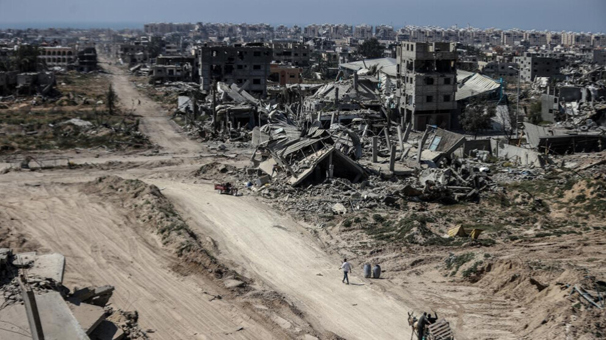
At least 20 Palestinians killed
Jinha - Womens News Agency - July 22, 2024
<<At least 20 Palestinians killed in Israeli strikes on Khan Younis
Israeli tank shelling and airstrikes killed at least 20 Palestinians
near Khan Younis after the Israeli military ordered civilians to
temporarily evacuate from part of its designated humanitarian zone in
southern Gaza.
News Center- Israel has carried out attacks on the Gaza Strip for 290
days. The Israeli military has intensified its attacks on Khan Younis.
Israeli tank shelling and airstrikes killed at least 20 Palestinians and
injured dozens of others near Khan Younis after the Israeli military
ordered civilians to temporarily evacuate from part of its designated
humanitarian zone in southern Gaza, Al-Aqsa TV reported on Monday.
Thick smoke rose over Rafah
Thick smoke rose over Rafah when the Israeli military targeted civilian
settlements in the Tel al-Sultan and Saudi neighborhoods, west of Rafah,
Al-Aqsa TV said, stressing that Israeli drones were flying over the
Nuseirat refugee camp.
Evacuation order
Amid the latest Israeli attacks in Khan Younis, the health officials at
Nasser Hospital in Khan Younis urged residents to donate blood through a
statement published by the Gaza's Ministry of Health because of the
large number of casualties being rushed into the medical center. The
Israeli military has ordered civilians to temporarily evacuate from part
of its designated humanitarian zone in southern Gaza to launch an
operation against Palestinian armed groups and told residents to head to
the al-Mawasi humanitarian area.
At least 38,983 Palestinians have been killed and 89,727 others injured
in Israeli attacks on the Gaza Strip since October 7, 2023, the Gaza's
health ministry said in a statement on Sunday.>>
Source:
https://jinhaagency.com/en/actual/at-least-20-palestinians-killed-in-israeli-strikes-on-khan-younis-35411
Food for thought and rapid supportive action: "US action on a two-state
solution in Israel-Palestine cannot wait..."
Al Jazeera - 23 July 2024 - By Sultan Barakat and Erin McCandless
<<US action on a two-state solution in Israel-Palestine cannot wait
Establishment of a viable Palestinian state will be the key to ending
this conflict. So how do we get there?
As Gaza is decimated and millions of Palestinians there desperately try
to hold on to life without shelter, food, water or adequate medical
care, the Israeli cabinet continues to <legalise> settlement outposts in
the West Bank - deepening challenges for a viable two-state solution. In
blatant defiance of international law, Israel's Finance Minister Bezalel
Smotrich framed the most recent settlement expansion decision on June 27
as retaliation against the recent recognition of a Palestinian state by
several European countries, promising, <For every country that
unilaterally recognises a Palestinian state, we will establish a
settlement.> While this promise is the natural next step of Israel's
long-term strategy of annexing the Palestinian territory under its
occupation, the blackmailing inference suggests an awareness of illegal
settlements as the linchpin of Israeli efforts to block continued peace
efforts. It also reveals how and why this conflict cannot be solved by
the Israelis and Palestinians alone. Although before October 7 Palestine
was recognised as a sovereign state by 143 of the 193 United Nations
members, it is the recognition by European states that most threatens
Israel's colonial settlement project and its far right's determination
to make it impossible for the Palestinians to pursue independence. In
addition to the multifaceted economic, security and diplomatic
relationships it has with Europe, the unique and complex history around
the Holocaust that justified the establishment of a Jewish state is
central to how Israel defines itself as a refuge for Jews worldwide
today.
Horrified by the humanitarian disaster unleashed on Gaza and reflecting
a growing movement in global public opinion, Ireland and Norway,
followed by Spain and Slovenia, recognised Palestinian statehood based
on the 1967 borders. Soon after, Malta affirmed its readiness to do the
same <when the time is right>. These bold moves, taken after the United
States, on April 17, vetoed a widely backed UN Security Council (UNSC)
resolution that would have paved the way for full UN membership for
Palestine, pushed the number of European states recognising Palestine to
12, including Bulgaria, Cyprus, Czech Republic, Hungary, Poland,
Romania, Slovakia, and Sweden, and the total number of UN member states
to 147. The recognition alone is not the solution, but a step towards a
sustainable solution. Recalling how his people once made a similar plea
for international recognition of their independence, Irish Prime
Minister Leo Varadkar described the two-state solution as <the only
credible path for Israel, Palestine, and their peoples>. In addition to
wide international consensus, a two-state solution is premised on the
right of self-determination and respect for the rights of both peoples
on the one hand, and sheer pragmatism on the other. It offers a
realistic compromise given the demographic reality of having two peoples
on one land. Even Hamas, long opposed to Israel's existence, has
recently indicated a willingness to disarm if a Palestinian state were
established. The roots of the two-state concept can be traced back to
the 1947 UN Partition Plan (Resolution 181), which proposed dividing the
British Mandate of Palestine into separate Jewish and Arab states. The
1993 Oslo Accords marked a significant milestone, establishing mutual
recognition between Israel and the Palestine Liberation Organization
(PLO) and promised the materialisation of an independent Palestine by
May 1999. This led to the founding of the Palestinian Authority (PA) and
setting a framework for future negotiations on core issues. The accords
failed to produce a two-state solution for several known reasons. These
include ambiguity in the agreement (on borders, Jerusalem, refugees)
that led to divergent interpretations and growing distrust, weak
political will and leadership, the failure to address core divisive
narratives and to stop extremist elements on both sides from serving as
spoilers, especially after the assassination of Yitzhak Rabin, which
significantly hardened the Israeli position towards a peace settlement.
However, it is the continuation of state-sanctioned Israeli settlement
expansion in occupied territory, which dramatically altered demographic
realities on the ground, that serves as the primary obstacle to the
establishment of a sovereign Palestinian state and the realisation of a
two-state solution. Despite these setbacks, the international community
has consistently reaffirmed support for a two-state solution. It remains
the only credible path to peace and the only basis for sustaining it.
Reflecting the wide member-state consensus that exists on this path, the
UN has passed some 800 resolutions dealing with the Israeli-Palestinian
issue, with several pivotal ones explicitly supporting two states. UNSC
Resolution 242 (1967), for example, called for Israeli withdrawal from
occupied Palestinian territory and recognition of every state's right to
live in peace within secure and recognised boundaries. Critics argue
that a two-state solution is no longer viable due to settlement
expansion, security concerns, and historical and religious claims to the
entirety of the land on both sides. However, these obstacles, while
significant, are not insurmountable. Other seemingly intractable
conflicts, such as those in Northern Ireland and South Africa, have
found resolution through compromise and dialogue. Moreover, alternative
proposals like a binational state or confederation model face even
greater practical and political hurdles. A two-state solution remains
the only approach with broad international support and a track record of
progress, however limited.
What then should be the next steps for securing a two-state solution?
First, the momentum to recognise Palestine as a state must be
maintained, with those states that have recognised it recently actively
advocating for the remaining few to do so, in particular the US and the
United Kingdom. Despite the US's <ironclad> support for Israel in Gaza,
now is the time to put international pressure on Washington, as
President Joe Biden does not necessarily oppose Palestinian statehood,
but believes it will only come from direct negotiations between the
parties. A second Trump administration, which the polls show could well
be in power in a matter of months, will fare far worse for this path.
Trumpís stated opposition to a two-state solution (based on Palestinian
support for Hamas) is at odds with every American president who has
engaged the issue. The conditions are equally ripe for applying pressure
on London. The British Labour Party, which won a landslide in a
hard-fought election and formed a new government earlier this month, has
pledged to recognise a Palestinian State <as a contribution to a renewed
peace process which results in a two-state solution>. Second, support
for the two-state solution in Israel should be nurtured and built upon.
Despite the Netanyahu-led Israeli government vehemently opposing a
two-state solution, it is important to recognise that the two-state
solution has centrally featured in Israeli politics since the 1990s,
with the majority of prime ministers supporting the notion, albeit under
certain conditions, such as demilitarisation of the Palestinian state.
While Israeli society fluctuates on this topic - understandable in a
protracted, violent conflict where media is constricted - the majority
seems to accept the notion according to various polls. In the context of
an Israeli leadership focused on peace, the support would likely be
higher. The Israeli voices who seek peace, security and dignity for all
should be amplified, especially in light of the far rightís increased
efforts to demonise and sideline them since October 7. Third, although
efforts to achieve reconciliation between Hamas and the PA have
intensified since October 7, partly thanks to China's facilitation, more
needs to be done for the Palestinians to capture the current momentum of
recognition. Hamas's expressed willingness to join the PLO to form a
unified government in the Gaza Strip and the West Bank must be built
upon and the PA must come forward with a comprehensive and inclusive
governance reform plan. But in order to achieve this, the international
community must first ensure the safety of the Palestinian people by
offering protection, at least for a transitional period. Fourth, Israeli
settlements must be reversed. There is no question that, to achieve
peace, illegal Israeli settlements on occupied Palestinian territory
need to be rolled back. Last week's International Court of Justice (ICJ)
ruling on the issue - which determined that Israel's continued presence
in the occupied Palestinian territory is unlawful and should come to an
end <as rapidly as possible> - should provide a roadmap.
The surge in settler violence against Palestinians in the occupied West
Bank and East Jerusalem since October 7 has reminded the world that
continued colonisation is incompatible with the creation of a viable
Palestinian state and thus sustainable peace. For the first time,
France, the UK, the US and later Germany and Poland have applied
sanctions against Israeli individuals responsible for such violence
(albeit a small number).
Finally, while many Palestinians and critical analysts understandably
dismiss discussions of <the day after> as the killing continues in Gaza,
to prevent another cycle of rebuilding and decimation, steadfast
attention must urgently be paid to core issues underpinning
sustainability. First and foremost, as countless peace processes have
revealed in the past and peace theorists have long argued, for
negotiations to succeed, parties need to be on relatively equal footing.
International support for Palestine in the form of statehood recognition
can help balance the scales. Addressing structural legacies of injustice
and issues driving the conflict is essential for fostering trust and
cooperation. To achieve sustainable peace and a viable two-state
solution, and prevent another cycle of violence, a comprehensive plan
must also be put in place to ensure security for both nations, and
crucially related, Palestinian economic independence. Beyond the
exorbitant costs of rebuilding Gaza (estimated by the UN at $40bn and
taking some 16 years), Palestinians will need reliable and comprehensive
financial support from the international community to lay the ground for
a viable, self-sufficient state.
Ultimately, action on a two state solution will require political will -
notably by the international community - to move this process in the
right direction of history, towards a viable and sustainable peace. This
means moving beyond minimalist goals of a ceasefire, and towards
embracing a more transformative process that engages the latest ICJ
findings on Israel's illegal occupation, to prepare the ground for a
two-state solution. Biden's role is vital in this regard - offering him
a swan song as he departs the political stage.
The views expressed in this article are the authors' own and do not
necessarily reflect Al Jazeera's editorial stance.>>
Source:
https://www.aljazeera.com/opinions/2024/7/23/us-action-on-a-two-state-solution-in-israel-palestine-cannot-wait
but...
Al Jazeera - 22 July 2024 - By Ali Harb
<<Biden's legacy is Gaza genocide, Palestinian rights advocates say
As politicians laud US presidentís character, critics say Biden will be
remembered for his support for Israeli 'crimes'. Democratic politicians
and commentators in the United States have heaped praise on President
Joe Biden since he dropped out of the 2024 presidential race on Sunday.
Representative Maxine Waters, for instance, called Biden a <kind and
decent man>. Former House Speaker Nancy Pelosi, meanwhile, extolled his
<vision, values and leadership>. But while political leaders showered
Biden with compliments, bombs continued to rain down on Gaza, killing
dozens and sparking another wave of mass displacement in Khan Younis.
For many Palestinian rights advocates, the carnage and abuses in Gaza
will define Biden's place in the history books, as the US remains
steadfast in its support of Israel's war in the Palestinian territory.
<He'll be remembered for the hundreds of thousands killed, injured and
displaced in Gaza,> said Abed Ayoub, the executive director of the
American-Arab Anti-Discrimination Committee (ADC). <There is no way
around it. 'Genocide Joe' is what he's going to be remembered as.> Since
Israel's war on Gaza started on October 7, Biden has offered the
government of Israeli Prime Minister Benjamin Netanyahu unconditional
military and diplomatic support. Only once did Biden withhold a shipment
of bombs to Israel over humanitarian concerns - and even then, he
released part of that cargo a couple months later, amid pressure from
Netanyahu. Israel's war, meanwhile, has killed nearly 39,000
Palestinians, displaced hundreds of thousands, fuelled a man-made hunger
crisis and destroyed large parts of the territory. United Nations
experts and other observers have warned of a <risk of genocide> in Gaza.
Ayoub told Al Jazeera that, despite Bidenís domestic achievements, the
president will rank among the worst in US history due to his
unconditional support for Israel. The US Campaign for Palestinian Rights
(USCPR) echoed that comment. <Nothing will erase the fact that Biden's
legacy is - and always will be - genocide,> the group said in a
statement.>>
Source:
https://www.aljazeera.com/news/2024/7/22/bidens-legacy-is-gaza-genocide-palestinian-rights-advocates-say
Women's
Liberation Front 2019/cryfreedom.net 2024


